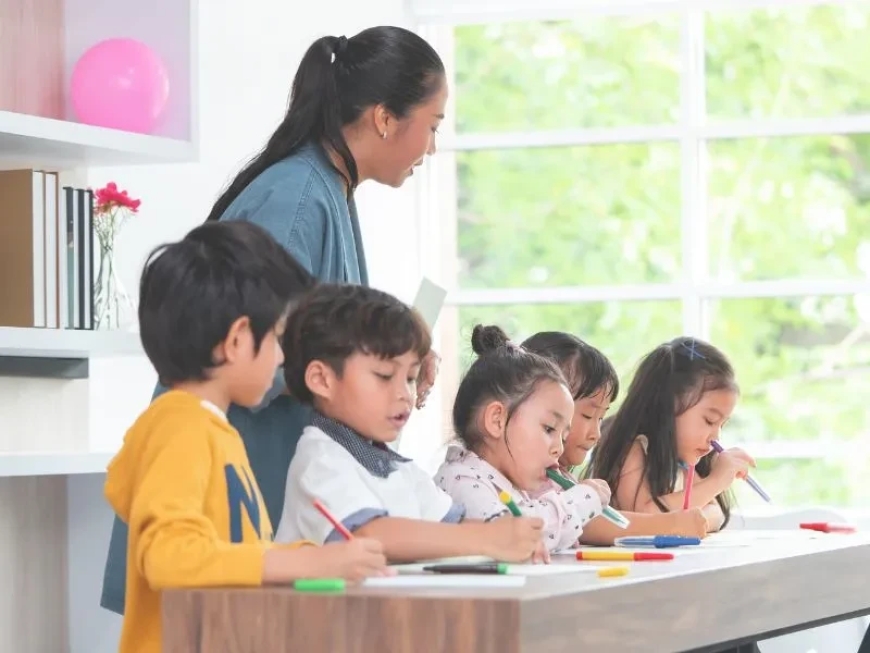Why Is Autonomy Important in Early Childhood Education
In hectic, cosmopolitan centers of learning such as Dubai, and especially in places such as Nursery in Al Barsha, autonomy is ever more central to excellence in early years education.

Autonomy in young children is one of the few concepts that has such a vast impact in early childhood. Giving children the opportunity to choose, discover on their own, and control themselves provides the foundation for lifelong healthy emotional growth and learning. In hectic, cosmopolitan centers of learning such as Dubai, and especially in places such as Nursery in Al Barsha, autonomy is ever more central to excellence in early years education.
In this blog, well explore why autonomy matters in early learning, how it influences children's development, and how high-quality institutions are embedding this philosophy into their programs.
Empowering Children Through Choice
Autonomy starts by providing children with the freedom to choose what is right for their age and level of development. That could be something as basic as choosing what to do or what to read during reading time. These quite small decisions provide children with a sense of control and confidence.
At the top schools like Nursery in Al Barsha, teachers are increasingly keen to adopt child-centered models. Not only do they foster curiosity, but they also honor children's own rhythms and interests. If a child feels heard and respected, his learning interest will naturally surge.
The Relationship Between Self-Rule and Emotional Development
Independence builds emotional strength. When children have choices to make, they become responsible and self-aware. They start learning about consequences in a secure, positive environment. This teaches patience, empathy, and emotional control skillsskills that are crucial for both academic achievement and relationships.
In Jumeirah nurseries, parents are attracted to programs that extend beyond the classroom by developing children's social, emotional, and physical skills. Autonomy-based learning is well-suited to this new, integrated method.
Developing Problem-Solving Skills at an Early Age
As children are granted autonomy, they automatically acquire problem-solving abilities. Instead of just depending on the advice of the adult, they start questioning, trial-and-erroring possible solutions, and assessing consequences on their own. Such is critical thinking's building block.
Through guided activity or role-playing, the role of independent thought in a Nursery in Al Barsha setting is not to exclusively teach, but to guide, observe, and provide an environment that provokes independent thought.
Autonomy in Social Interaction
Social learning forms the bulk of early childhood education. Autonomy gives children the opportunity to learn to communicate with other childrenhow to share, cooperate, and negotiate. By giving children the autonomy to play together without interference, they will learn to read social cues and build close relationships.
During group activity or role-playing common in a Dubai nursery for kids, autonomy offers children the confidence to move ahead, share ideas, and appreciate several opinions. It provides the ground for empathy and belongingness at an early stage.
Montessori and Reggio Emilia Influence
Philosophies of education such as Montessori and Reggio Emilia have perpetually adhered to autonomy. These schools are in adherence to the philosophy of the child as a learner. The classroom is the laboratory where children test well-prepared materials and activities.
Most contemporary institutions, such as most of the Best nursery in Al Barsha, use components of these approaches. Their facilities are child-centered, and they possess resources, open timetables, and learning stations supporting autonomy and exploration at their disposal.
The Educator's Role in Encouraging Autonomy
Teachers in autonomy-based nurseries become facilitators instead of they would be through traditional teaching patterns. They monitor children's interests, use open-ended questions, and support expression. They balance structuring and giving freedom.
This philosophy is being adhered to in top Nursery in Al Barsha schools where the teacher is educated to cultivate and not dominate, to empower and not command. Such an environment creates a room full of active, contented learners who feel empowered and motivated.
The Long-Term Impact of Autonomy in Early Education
Studies continually reveal that children who establish a solid sense of autonomy early in life will become good, motivated, and resilient adults. They take their confidence, ability to make choices, and enthusiasm for learning well beyond the nursery school.
This places autonomy not only a trend, but a necessary column of quality early childhood education in every corner of the globeincluding among highly-rated centers like a nursery in Business Bay, where competitive and innovative programs are more and more highlighting self-directed learning.
Final Thoughts
Encouraging autonomy in early childhood is not simply making the choice to provide them with choicesit's teaching independence, hardness, and a greater association with learning. Within diverse learning settings like Nursery in Al Barsha, autonomy is not an option but a necessity. Parents who require total development of their children need to pick nurseries that in reality follow autonomy-supportive teaching.
Here at Little Minds Dubai, we believe firmly that every child must have a place to feel the boss, heard, and able to grow at his or her own pace. Our education emphasizes autonomy




























